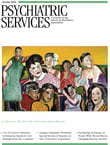Deconstructing Psychosis: Refining the Research Agenda for DSM-V
The book Deconstructing Psychosis is an edited volume reporting on one of a series of conferences held to establish a research agenda as part of DSM-V development. The February 2006 conference was supported by the American Psychiatric Institute for Research and Education in collaboration with the World Health Organization, with funding from the National Institutes of Health. The 11 chapters were previously published as articles in Schizophrenia Bulletin in 2007. The objectives for the conference were to promote international collaboration to remove disparities between the DSM and ICD diagnostic systems, to stimulate the research necessary to address deficiencies of DSM-IV, and to develop criteria that can be used worldwide in research exploring the etiology and pathophysiology of mental disorders.
The psychotic disorders "deconstructed" include schizophrenia, bipolar disorder, and psychotic major depression. Deconstruction includes consideration of "genetics, psychopathology, cognitive psychology and neuropsychology, epidemiology, neuroimaging, neuropharmacology, postmortem research, transcultural research, early intervention, developmental epidemiology, and addiction." Evidence was considered "in relation to both categorical and dimensional representations of psychosis."
The introductory section by editors Tamminga and van Os ends with what is really the thrust of the book: "Although our diagnostic classification systems are reliable and useful, they have limited validity in defining biological entities because these are unknown for most mental illnesses. This existence of diagnostic labels with limited validity in psychiatry needs to be tackled and improved with each subsequent version of our diagnostic system."
For those interested in understanding the rationale for changes in the draft DSM-V regarding psychotic disorders, this book is timely. The authors demonstrate the substantial gains in knowledge since the publication of DSM-IV and yet acknowledge how limited our knowledge remains. This tension leads to compromises in the DSM-V . We are reminded that Kraepelin, after his breakthrough division of psychotic disorders into dementia praecox and manic-depressive insanity, had concluded by 1920 that this construct was probably incorrect. Yet there are enough conflicting data suggesting real differences between the two disorders. The world is not ready to stop distinguishing between schizophrenia and bipolar disorder. The authors also make a compelling argument on a more global level: our categorical diagnostic system is flawed, but a purely dimensional system would be imperfect and impractical as well. The authors suggest a compromise of adding dimensions of disorders to the current categorical system. A dimensional-categorical hybrid addresses variability along multiple domains. This moves psychiatry toward a more valid system and permits consideration of ethnic and cultural variations affecting diagnosis.
There is much to absorb in this slim but dense volume. It includes helpful discussions of the importance of culture and ethnicity in diagnosis and the need to separate severity from the presence of psychosis in major depression (they are not integrally linked). It also explains clearly the meaning of endophenotypes and why they are important in the absence of complete understanding of pathophysiology of disease. Readers interested in our evolving diagnostic approach to psychotic disorders will find Deconstructing Psychosis of keen interest.
The reviewer reports no competing interests.



